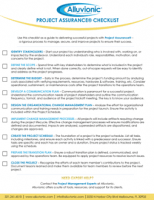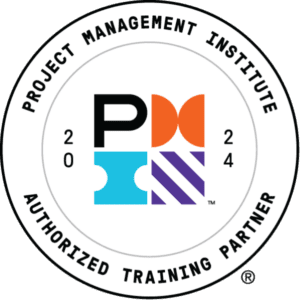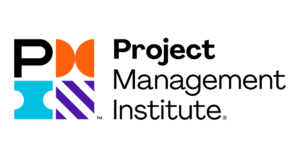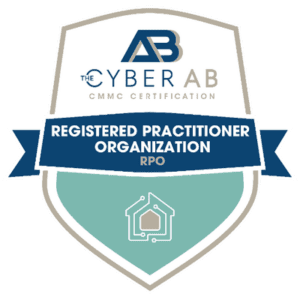Enterprise Resource Planning (ERP) software impacts all aspects of a business. ERP software manages important functions like finance, operations, manufacturing, and human resources. Many leaders underestimate the project management required to successfully implement an ERP system.

Understanding ERP Implementations
ERP implementations are complicated. To better understand the concept, it is helpful to use an analogy. This type of project can be compared to a heart transplant. Every function of the body is impacted when the central organ is replaced. The body must keep working during the surgery. The surgeon constantly monitors the patient and coordinates a team of experts to succeed.
The software at the heart of the business connects data, processes, reports, and people. When a new system is implemented, people must continue to do their jobs. This requires extensive project management and organizational change management (OCM).
The Implementation Team
The people on the project team determine its success. An implementation team typically includes system implementation experts, data conversion resources, business subject matter experts, a steering committee, and a project manager. This team is often made up of consultants, employees, and subcontractors. As a result, many team members have different skills, physical locations, and time zones.
Coordinating this qualified, diverse team requires the organization of a skilled project manager. An ERP project manager leads the implementation with a focus on team collaboration.
The Project Manager Role
A successful project manager is both technically competent and emotionally intelligent. ERP projects are long and complicated. These conditions can stress and fatigue the most engaged team members. Project team members also have daily responsibilities outside of the implementation. A balanced approach to ERP project management includes both technical and people skills.
The Technical Skills
The project manager guides the team through each phase of the implementation. The phases include planning, ongoing management, requirements and design, testing, training, go-live, and post-go-live support.
Most of the project manager’s time is spent in the planning phase of the ERP project. Defining the project schedule takes a coordinated effort of many members of the implementation team. The project manager tracks the schedule daily and sometimes hourly.
Throughout the implementation, ERP project managers provide accountability to the team. They spend a lot of time tracking action items, removing roadblocks, and escalating issues. Because ERP implementations are lengthy, stakeholders frequently fail to recall previous decisions. Diligently maintaining action items, risks, and decisions is vital to preventing rework or conflict later in the project.
A key function of the project manager role is a dedicated commitment to documentation, especially during the requirements and design phase. Obtaining a signed acknowledgment of requirements is vital before configuring the system
A large portion of time in the implementation is spent testing. Several iterations of testing occur, each with a different focus. These testing cycles include functional, systems integration, regression, and user acceptance testing. Functional testing exposes Subject Matter Experts (SMEs) to the system. During systems integration testing, the system is configured as specified in the design documents. In the early stages, SMEs will request a lot of changes. It is important to document these requests in the next revision of design documents. Regression testing ensures that the system still works as expected after changes have been implemented. User acceptance testing is the final cycle where users accept that the system functions as designed.
Project managers stress the importance of training with SMEs. Throughout the lifecycle of the project, SMEs are instructed to develop work instructions and training sessions to conduct with their peers.
Through regular meetings and emails, the project manager keeps training at the forefront of the team’s mind. Before training end-users, SMEs should conduct a short training session with one another. These sessions are extremely successful in recognizing handoffs, building confidence, and identifying issues with work instructions. The importance of documenting handoffs is highly emphasized. The most common post-go-live issues stem back to people not knowing how, what, or when, they were supposed to do something.
As go-live approaches, the project manager builds anticipation around the go-live date. Some tactics include displaying countdown clocks, sharing success stories that highlight the benefits of the new system, and providing physical materials that reinforce the available support. Go-live is an exciting day where the team continues executing the cutover plan. The implementation team’s dedication continues at least sixty to ninety days after go-live. The project manager continues regular communications around the overall project status, shares the benefits realized, and recognizes the implementation team.
Managing Expectations
Managing expectations is critical to implementation success. The new system does not function exactly like the previous one. If it did, there is likely little justification for the implementation or migration at all. Stakeholders can become easily frustrated when functionality that worked before no longer seems to work. A project manager constantly level sets expectations, reminding individuals that some efficiencies will be gained, and others lost.

Leading through Change
The project manager rallies, encourages, and motivates the team. They do so by planning and executing the organizational change management (OCM) strategy. A popular organizational change methodology is Prosci’s ADKAR model. This model is designed to educate and empower impacted individuals. The five elements that individuals must achieve to be successful are: Awareness, Desire, Knowledge, Ability and Reinforcement. A powerful OCM strategy addresses each element of the ADKAR model.
Project managers lead regular communication meetings. These meetings hyper-focus on preparing stakeholders for the disruption that a new ERP system has on daily operations. ERP Project Management communication strategies include consistent messages from senior leadership. These messages raise awareness for the upcoming change. They also emphasize the benefits for and impact on all end users. Key personnel are trained as SMEs in their functional area of the ERP system. These SMEs also convey the benefits of moving to the new system to peers, employees, and managers to raise desire.
Delivering Business Value
By understanding human emotion and exercising strong technical ERP project management skills, the project manager delivers ultimate business value. ERP implementations, like surgeries, require a specialized team with the right leader.
Before embarking on your ERP implementation journey, ensure you have the right project manager. Contact the project experts at Alluvionic to determine if a consulting solution is right for you or read more at https://alluvionic.com/project-management/.
About Alluvionic
Founded in 2013, Alluvionic provides Project Assurance® through project management, process improvement, product development, and cybersecurity solutions with locations in Melbourne, FL, Washington D.C., and Charleston, SC (coming soon). Alluvionic holds several certifications including SBA 8(a) certified, ISO 9001:2015 certified, Cyber-AB Registered Provider Organization (RPO), CMMI® Institute Partner, DCAA Compliant Accounting System, PMI Authorized Training Partner, GSA Contract Holder, GSA 8(a) STARS III Contract Holder and more. In 2021, Alluvionic was awarded the recognition of Orlando Business Journals’ “Best Places to Work”. Learn more about Alluvionic at www.Alluvionic.com.

Download our Project Assurance checklist to start your project off right.
Enter Your Email to Receive Your Download

























